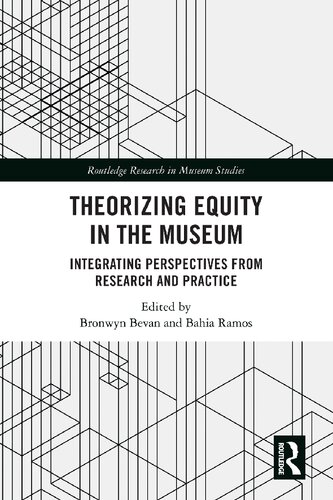

Most ebook files are in PDF format, so you can easily read them using various software such as Foxit Reader or directly on the Google Chrome browser.
Some ebook files are released by publishers in other formats such as .awz, .mobi, .epub, .fb2, etc. You may need to install specific software to read these formats on mobile/PC, such as Calibre.
Please read the tutorial at this link: https://ebookbell.com/faq
We offer FREE conversion to the popular formats you request; however, this may take some time. Therefore, right after payment, please email us, and we will try to provide the service as quickly as possible.
For some exceptional file formats or broken links (if any), please refrain from opening any disputes. Instead, email us first, and we will try to assist within a maximum of 6 hours.
EbookBell Team

0.0
0 reviewsTheorizing Equity in the Museum integrates the perspectives of learning researchers and museum practitioners to shed light on the deep-seated structures that must be accounted for if the field is to move past aspirations and rhetoric and towards more inclusive practices.
Written during a time when museums around the world were being forced to reckon with their institutional practices of exclusion; their histories of colonization, both cultural and intellectual; and, for many, their tenuous business models, the chapters leverage a range of theoretical perspectives to explore lived experiences of working in the museum towards changing the museum. Theories of spatial justice, critical pedagogy, culturally relevant pedagogy, critical race theory, and others are used to consider how the museum’s dominant cultural structures and norms collide with museum professionals’ aspirations for inclusive practices. The chapters present a mix of empirical research and reflections, which collectively operate to theorize the museum as a potential force for enriching, empowering, and transforming an inclusive public’s relationship with some of our most powerful ideas and aspirations. But first they must change, from the inside out.
Grounded in practice and practical problems, Theorizing Equity in the Museum demonstrates how theory can be used as a practical tool for change. As a result the bookwill be of interest to academics and students engaged in the study of museums, education, learning and culture, as well as to museum practitioners with an interest in equity and inclusion.